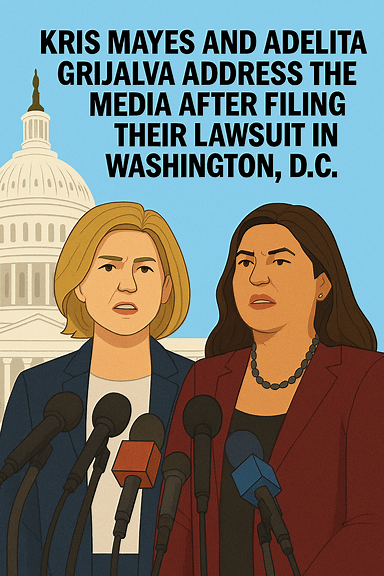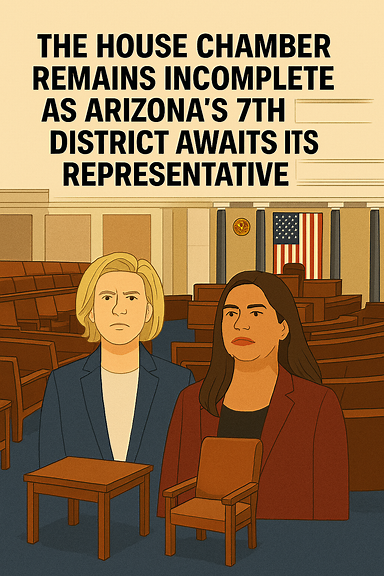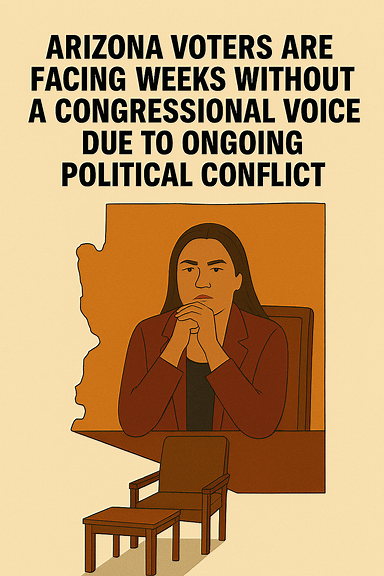
Kris Mayes and Adelita Grijalva address the media after filing their lawsuit in Washington, D.C.
In a dramatic move, Arizona Attorney General Kris Mayes and Rep.-elect Adelita Grijalva filed a federal lawsuit against the U.S. House of Representatives, challenging the delayed seating of Grijalva as Arizona’s new member of Congress. The controversy centers on Speaker Mike Johnson’s refusal to hold a swearing-in for Grijalva, despite her victory in a September special election following the death of her father, Raúl Grijalva.
The Core Argument: “Taxation Without Representation”
Kris Mayes, a Democrat, accuses Johnson of voter disenfranchisement for leaving over 800,000 Arizonans without representation in the House. She emphasized the constitutional significance, stating, “Arizona’s right to full representation in Congress is not up for debate, and it is not a pawn for Johnson to use as leverage in his shutdown fight with Democrats.”[1]

The House Chamber remains incomplete as Arizona’s 7th District awaits its representative.
Political Motivations and Accusations
Speculation is rife that Johnson’s delay may be politically motivated—particularly since Grijalva’s signature could force a House vote to release confidential Epstein files. Critics note Republican equivalents from Florida were sworn in promptly after their elections during pro forma sessions, making this delay unprecedented and “an unacceptable disgrace,” according to Democratic House Leader Hakeem Jeffries.[2]
What’s at Stake for Arizona?
Grijalva is left without access to critical resources—she cannot vote, lacks office funding, and is unable to perform duties for her 813,000 constituents. “Arizona will not beg for its full representation in Congress,” Mayes insists, echoing the frustration of those whose voices are currently silenced.[3]

Arizona voters are facing weeks without a congressional voice due to ongoing political conflict.
Frequently Asked Questions
- Why has Adelita Grijalva not been sworn in?
Speaker Mike Johnson cites the government shutdown as a barrier, but critics allege political motives are at play.[4] - What legal action has Arizona taken?
The state, via AG Kris Mayes, has filed a federal lawsuit to compel action on Grijalva’s behalf. - Is this precedent-setting?
Instances of such delays are rare and parallel cases, like Florida’s recent special election, saw immediate swearing-in. - What are the immediate consequences for Arizona’s 7th District?
No representation, no official office, and critical constituent access has been cut off. - What could happen next?
A federal court ruling may enforce the House to seat Grijalva, but negotiations and political maneuvering are likely to continue.[5]
Conclusion
This lawsuit highlights an urgent intersection of law, politics, and the fundamental right to representation. As legal proceedings unfold, the nation watches to see whether democratic norms will prevail over political gridlock.